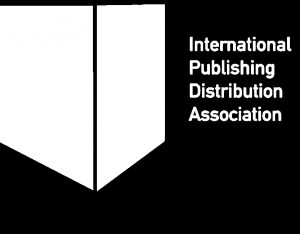Readmagined by Bookwire has been created for the Readmagine conference in 2024, so this innovative company has taken over the curation of the last day of this edition and has focused it on the issue of «audiences.» Mariana Féged (General Manager Spanish Markets and EMEA) at Bookwire organised and facilitated a conversation with Antonio J. Rodriguez of Refugio, a digital strategy firm for publishers, and Jeremy Wong of Vesto PR and Books, a publicity agency.
The discussion centered around the evolving landscape of publishing, the emergence of new audiences, and the impact of social media on reader engagement and book discoverability.
You can watch the video with the whole session.
Here is a summary that the Fundación Germán Sánchez Ruipérez team has organized.
- The Emergence of Reader 2.0
Mariana Féged initiated the conversation by addressing the concept of new audiences in the hyper-connected, social media-driven world. She inquired whether there is a new type of reader emerging, dubbed Reader 2.0 or 3.0, and what this means for the publishing industry.
Antonio J. Rodríguez’s perspective
Antonio J. Rodríguez endorsed the term Reader 2.0, emphasizing how social media has disrupted traditional publishing paradigms. He highlighted that social media has transformed communication, consumption, and connections, profoundly affecting how readers discover and engage with books. Rodríguez believes the definition of Reader 2.0 encompasses these shifts, showcasing the integral role of social media in the modern reading experience.
Jeremy Wong’s insights
Jeremy Wong agreed, noting the text-based nature of social media interactions as a daily exercise in reading and writing. He stressed the challenge for publishers to harness this engagement and direct it toward books. Wong sees a natural evolution where the energy and intelligence of social media users can be funneled into a focused readership.
- Discoverability in the digital age
Mariana highlighted the transformation in how books are discovered. She pointed out that the traditional method of browsing bookstore shelves has given way to myriad digital channels.
Jeremy Wong on “touch points”
Wong discussed the increase in touch points due to social media. Previously, multiple exposures to a book through traditional means were necessary for a sale. Now, the numerous interactions available through digital platforms present both opportunities and challenges. Publishers and authors must create compelling stories that resonate across these new channels to capture readers’ attention.
Antonio J. Rodríguez on competition
Rodríguez added that books now compete with all forms of digital content. Publishers must rethink their strategies to stand out among various entertainment options. The goal is to inform potential readers about interesting books amidst a sea of other digital distractions.
- Social media and reader’s engagement
Mariana noted the increased visibility of reading in popular culture, with celebrities like Dua Lipa recommending books. This trend presents a significant opportunity for publishers to connect with a broader audience through emotional and aspirational marketing.
Antonio J. Rodríguez on “literary health”
Rodríguez introduced the concept of «literary health,» comparing reading habits to fitness routines. People set reading goals, similar to workout goals, to enhance their well-being. This mindset shift can drive engagement and book sales.
- The Role of technology in publishing
Jeremy Wong on distribution systems
Wong emphasized the importance of robust distribution systems for making books accessible. Companies like Bookwire play a crucial role in ensuring books are available in various formats, thus supporting both small and large publishers in reaching their audiences.
- Social Media Strategies for publishers and authors
Antonio J. Rodríguez on authors’ hyper-productivity
Rodríguez highlighted how contemporary authors are leveraging social media, YouTube, newsletters, and podcasts to build their brands and connect with readers. He stressed the necessity for publishers to adopt similar strategies to stay relevant and competitive.
Jeremy Wong on the publisher’s brand
Wong discussed the evolution of publishers’ branding strategies, drawing inspiration from European models where the publisher’s identity signifies literary excellence. This approach helps build a community and supports marketing efforts, especially for smaller publishers.
- Challenges for smaller publishers
Mariana pointed out the challenges smaller publishers face in implementing comprehensive social media and digital marketing strategies due to limited resources. She questioned how these publishers can effectively compete in this demanding environment and the resource allocation.
Antonio J. Rodríguez on digital strategy
Rodríguez suggested that the key to success lies in inspiring people. He believes publishers should focus on creating stories that resonate deeply with audiences, regardless of their size or budget.
Jeremy Wong on author engagement
Wong agreed, noting that active and social media-savvy authors have a significant advantage. He emphasized the importance of creating an intimate extension of the story through various digital channels to foster a strong connection with readers.
- Differences in audience engagement between the US and Europe
Mariana Féged continued by asking Jeremy Wong about the differences in engaging audiences in the US compared to Europe.
Jeremy Wong highlighted two key differences:
– Campaign timelines: US campaigns start much earlier. For instance, Farrar, Straus and Giroux (FSG) announced a new essay collection by Andrea Long Chu, set to release in April 2025, well in advance to build anticipation and ensure proper metadata setup.
– Pre-publication copies: Before the pandemic, large publishers sent out numerous pre-publication copies to reviewers and editors. The pandemic shifted this practice towards digital copies and audiobooks, which many reviewers now prefer.
- The rise of audiobooks
Mariana emphasized the growing importance of audio content, not just audiobooks, in enhancing reader engagement and creating a more immersive experience.
Jeremy Wong agreed, noting the shift in perception about audiobooks. Initially seen as a lesser form of reading, audiobooks are now recognized as a legitimate way for authors to reach and engage with audiences. Authors often insist on narrating their own audiobooks to maintain a personal connection with their readers.
Antonio J. Rodríguez added a interesting note, likening the oral tradition of storytelling, such as the Odyssey, to modern audiobooks. He emphasized that social media and new media are expanding the ways literature can be experienced and shared.
- Creating community and emotional connections
Mariana Féged discussed how different formats now play a significant role in engaging readers and building communities around books. The creation of community and emotional connections is crucial in today’s publishing landscape.
Jeremy highlighted the success of authors who actively engage with their readers through social media, podcasts, and other digital platforms. These authors create intimate, relatable content that resonates with their audiences.
- Case studies in book promotion
Jeremy shared two examples of successful book promotions:
– Another Appalachia: Coming Up Queer and Indian in a Mountain Place» by Neema Avashia: This book, published by a small press, gained significant traction through personal essays and counter-narratives, selling 8,000 copies primarily through organic promotion.
– Couplets: A Love Story» by Maggie Millner**: A debut poetry collection with substantial buzz from the NYU MFA program. It achieved widespread reviews and sales through a combination of traditional and digital promotion.
Antonio presented three examples from Refugio’s work:
– «En agosto nos vemos» by Gabriel García Márquez: An organic campaign for Random House Spain that utilized timely and engaging audiovisual content, achieving high levels of engagement.
– Reputation management for a Spanish publisher: A campaign that involved creating positive, relatable content to improve the publisher’s reputation.
– Editorial Kairos: A strategy focused on YouTube and social media to modernize the brand and reach a new audience interested in spirituality, mindfulness, and yoga.
- The Role of prescribers and influencers
Mariana Féged noted the significant role of celebrity and TikTok-driven prescribers in book promotion, questioning whether there are notable male influencers in this space.
Antonio J. Rodríguez acknowledged the dominance of female influencers in book promotion. He noted a cultural shift from elitist, male-dominated literary critique to a more passionate, inclusive discussion driven by Bookstagrammers and other digital influencers.
- Question on global campaigns
Andrew Rhomberg (Jelly Books) asked, as part of the audience Jeremy Wong about managing book campaigns in the US and UK, given the same language market but different social media environments. Jeremy emphasized thinking in terms of English-language readers globally, highlighting successful collaborations between US and UK publishers.
Final Remarks by Mariana Féged
Mariana concluded the conversation by reiterating the importance of connection, engagement, and community in modern publishing. She emphasized that successful book promotion now relies on creating emotional bonds with readers through diverse and innovative channels.
Antonio J. Rodríguez is founding partner and creative director of rrefugio, a digital strategy agency dedicated to the publishing industry. For more than five years he was editor-in-chief and co-director of content at PlayGround, and later worked as a political communications consultant and independent creative director for major brands. He has been editor at Caballo de Troya. He is also the author of books such as El Dios celoso (Debate, 2024), La nueva masculinidad de siempre (Anagrama, 2020) and Candidato (Random House, 2018).
Jeremy Wang-Iverson (New York, 1980) is the founder and principal of Vesto, a literary publicity and marketing agency that works closely with authors and publishers to support the publication of new books. Vesto’s clients (past and present) include the Association of University Presses, Farrar, Straus and Giroux, Goethe-Institut, Granta Magazine, and The New Press, among others. Jeremy began his publishing career in 2005, working for several trade and academic publishers, including Princeton University Press, Bloomsbury Publishing, and Oxford University Press, before starting Vesto in 2017, when he moved from New York to Barcelona with his family. He is also interested in supporting Spanish authors, agents, and publishers to find US and UK publishers for their books and increasing the work’s visibility in English. He is on X @wangiverson & Instagram @wang.iverson.
Mariana Féged is the General Manager, Spanish Markets, France, and EMEA at Bookwire. She oversees Bookwire’s activities across Europe (excluding Germany) and Latin America. In this position, she manages a catalog of nearly half a million eBooks and over 100,000 audiobooks from publishers such as Bloomsbury, Editis, Faber & Faber, Grupo Planeta, and Penguin Random House Grupo Editorial, among others.
With a career spanning over 20 years, Mariana has specialized in digital business development in the publishing industry. She has held positions such as Head of Digital and Marketing at Círculo de Lectores and Director of Innovation at Arvato, part of the Bertelsmann group, where she worked for more than 13 years.





